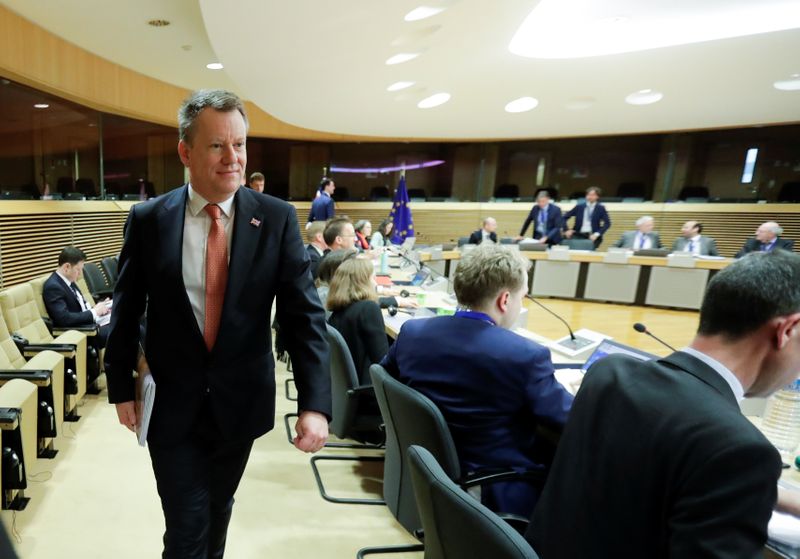LONDON (Reuters) – Britain will reject any European Union proposal which gives the bloc the right to respond with tariffs to changes in British law following Brexit, chief negotiator David Frost said on Thursday.
Britain and the EU have intensified talks on a trade deal that would replace ties severed by Brexit but with only a few months until a deal must be reached, the sides remain far apart. A transition period, during which Britain remains in the EU single market and customs union, expires at the end of the year.
The next round of talks begins on Monday and will be held face-to-face for the first time since the coronavirus epidemic spread in March. Frost said they would be focused on whether “genuine and rapid progress” could be made.
“The government will not agree to ideas like the one currently circulating giving the EU a new right to retaliate with tariffs if we chose to make laws suiting our interests,” he tweeted.
“We could not leave ourselves open to such unforeseeable economic risk.”
Sources in Brussels have in recent days floated the possibility that existing regulations on state aid could be used as the benchmark for future common standards. Should Britain then deviate from them, the EU could retaliate with tariffs.
In a separate statement on Thursday, the EU said it still wanted “as close as possible” and “ambitious” relations with Britain from 2021.
But it also called on the 27 member states, their people, institutions and businesses to prepare for the most damaging, “no-deal” split given that negotiations with London, which left the EU on Jan. 31, have so far made little headway.
The EU’s Brexit negotiator also said before more talks next week that the UK now needed to move if it wanted a deal this year.
(Reporting by Guy Faulconbridge with additional reporting by Gabriela Baczynska in Warsaw; Writing by William James; Editing by Elizabeth Piper and Mark Heinrich)




















